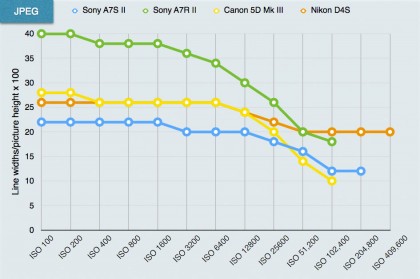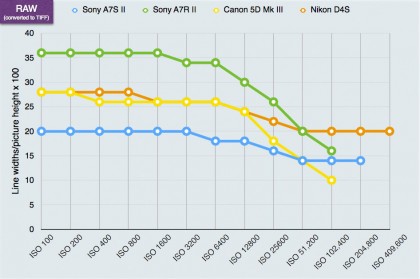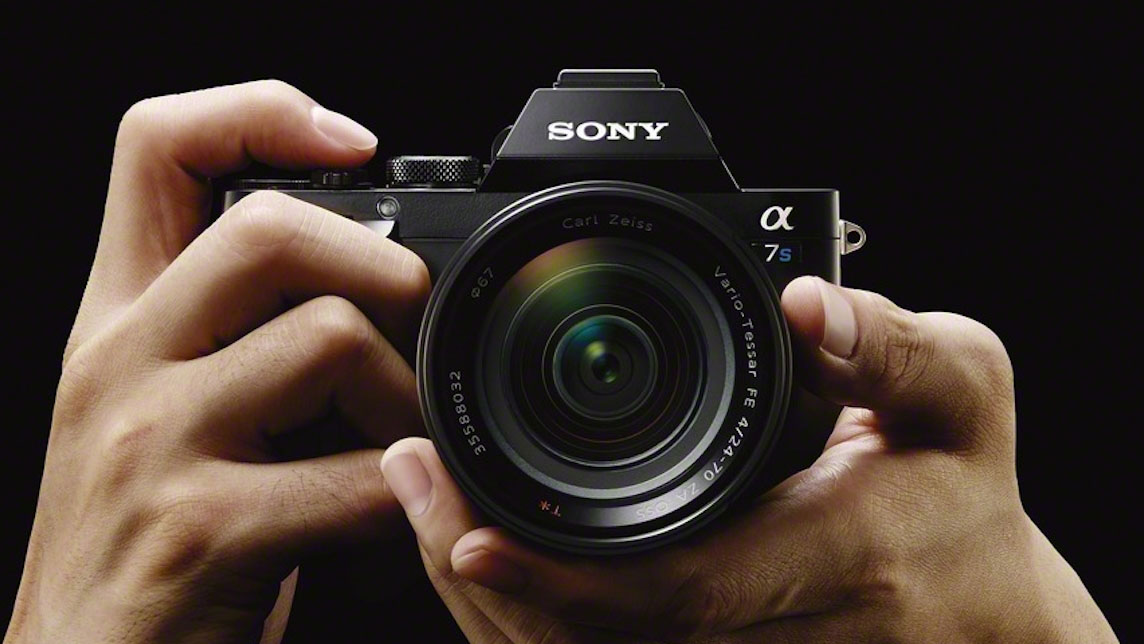Why you can trust TechRadar
We've tested the resolution of the Sony A7S II using our standard test chart at ISO settings right up to the camera's maximum of ISO 409,600. High ISO performance is one of this camera's key selling points, so we've created specially extended test charts (below) to show how this camera and its rivals perform in extreme lighting conditions.
The three rival cameras we've chosen are:
Sony A7R II: It has more than three times as many megapixels as the A7S II, and you'd expect the trade-off to be much poorer performance at higher ISOs. But is that what happens?
Canon EOS 5D Mark III: Canon's long-running favorite amongst pro photographers offers a great balance between stills and video quality and high-resolution/high-ISO performance.
Nikon D4S: Like the Sony A7S II, The D4S is designed to be a master of low light photography, but with 16 megapixels rather than 12, is it a better compromise for general use?

JPEG resolution analysis: It's obvious right away that the 12 million pixel sensor of the A7S II is the major limiting factor for its resolution figures. A figure of 22 line widths/picture height is what you'd expect from a compact camera, not a full-frame professional model. The EOS 5D Mark II and Nikon D4S beat the A7S II convincingly for resolution, and the A7R II is so far ahead it's not even in the same ballpark. But the A7S II does start to get on even terms at super-high ISOs, where its resolving power is much closer to the rest.

Raw (converted to TIFF) analysis: The pattern is repeated with raw files – in fact, the gap between the A7S II and the rest is even larger. It's not until ISO 51,200 that it starts to edge ahead of the EOS 5D Mark III for resolution, and it never catches up with the Nikon D4S.
Current page: Lab tests: Sony A7S II resolution
Prev Page Performance: autofocus and stabilisation Next Page Lab tests: Sony A7S II dynamic range